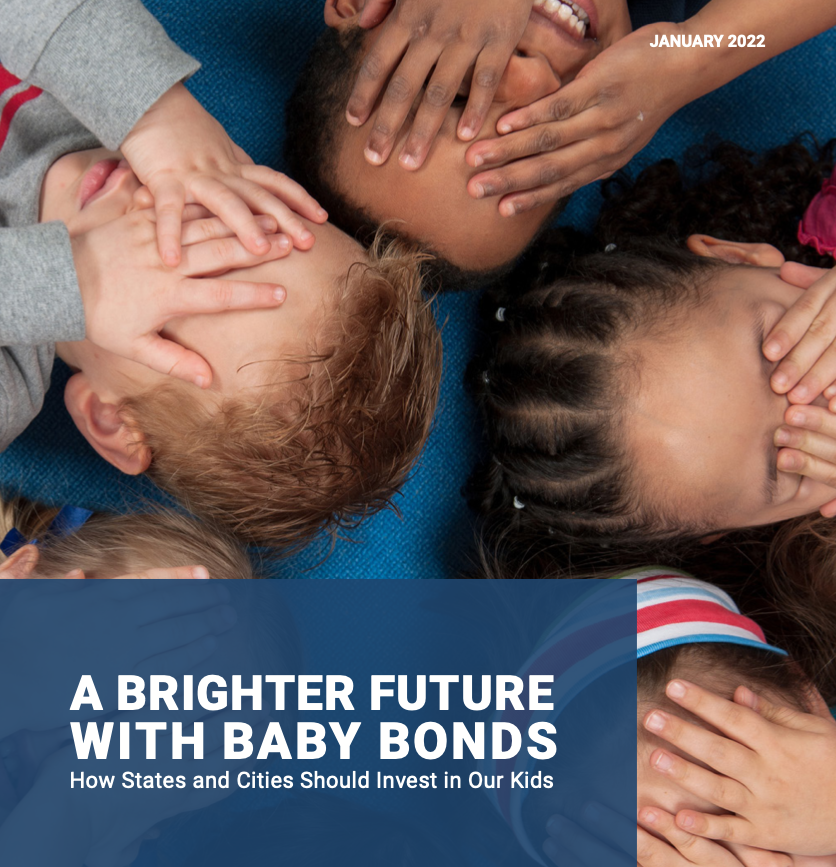
The New School’s Institute on Race, Power and Political Economy Promotes Baby Bonds as Means to Close the Racial Wealth Gap
The racial wealth gap in the United States has always been pronounced, stemming from a long history of economic and political exploitation of Black, Indigenous, and other people of color. It has been affected by both government policies and government-sanctioned private-sector practices that have benefited White households, often at the expense of non-White households. To address this entrenched issue, Darrick Hamilton, Professor of Economics and Urban Policy, and Founding Director of the Institute on Race, Power and Political Economy at The New School, has proposed the creation of publicly-funded child trust accounts, commonly known as baby bonds, that would provide a more just and egalitarian pathway for wealth building. Hamilton is an architect and leading advocate for baby bonds–where the federal government would establish a trust at birth for every child ranging from $1,000 upwards to $50,000. The accounts could be used when the child reaches adulthood as a capital foundation to finance higher education, start a business, or purchase a home.
Hamilton recently discussed the opportunities baby bonds could provide during a virtual event highlighting the findings of the new paper “A Brighter Future with Baby Bonds: How States and Cities Should Invest in Our Kids.” Created in partnership with the nonprofit Prosperity Now, the paper explains why baby bonds are needed to address the racial wealth divide, how they may be implemented at the state and local level, and how that can be aligned with a potential national baby bonds program.
“Trust funds should not be the exclusive domain of children born into wealth,” said Darrick Hamilton in a press release for the event. “Baby bonds provide a public trust, birthright to capital and a pathway to economic security as an economic right.”
Academics, policy experts, journalists, and state and local legislators participated in two panels exploring the steps states and cities can take to address the economic disparities in their communities, and how the national economy could be transformed into one where everyone can thrive. New Jersey Senator Cory Booker, a champion of baby bonds on the national level, provided remarks during the event, commenting that “The problems we faced before this pandemic, from economic insecurity and inequality to persistent poverty, environmental justice, food insecurity and disparities in healthcare and outcomes, have all gotten worse in this pandemic.” He continued “Wealth inequality is perhaps our economy’s most relentless feature compounding its benefits over time to some and its detriments to others across generations… We need to put forward a bold aspirational vision for racial economic justice in this country. I think baby bonds is the foundational piece of that.”
Kimberly Adams, host and correspondent of National Public Radio’s Marketplace, moderated the panel discussions, the first featuring two pioneers who have implemented baby bonds in their localities—Shawn Wooden, Treasurer, State of Connecticut; and Kenyan McDuffie, Councilmember, District of Columbia; and policy expert Shira Markoff, Policy Fellow at Prosperity Now. The second panel brought together Hamilton and David Grusky, Edward Ames Edmond Professor and Director of the Center on Poverty and Inequality at Stanford University, in a broader discussion of wealth inequality and baby bonds at the national level.
“The reason that people are poor is because they lack resources. That’s a definition. It’s almost an identity. So, poverty is a political choice,” said Hamilton during the event. “Right now, the way we have defined our economy and defined our narratives about opportunity and even the American dream has put the onus on individuals so much that we ignore structures. We protect property rights but not economic rights, not human rights. I think an alternative approach is rather than using the market as a disciplinary mechanism, we need a society that empowers people so that they can reap the rewards of their ingenuity in an authentic way. So they can reap the rewards of their hard work in an authentic way. And that’s going to take time…We need an economic rights framework. We need to make sure people have the resources they need to thrive.”